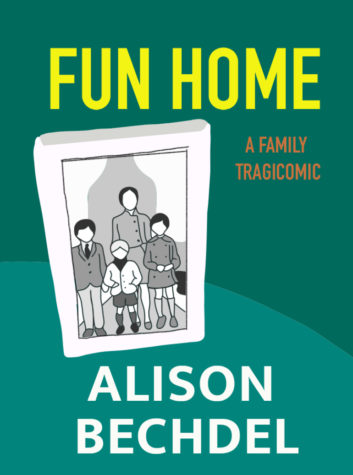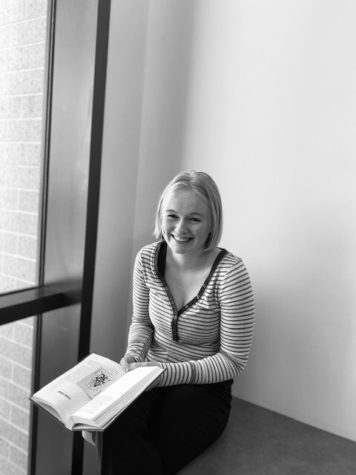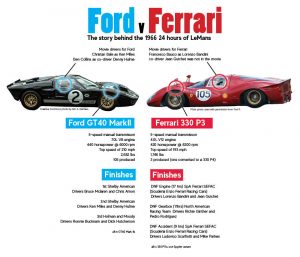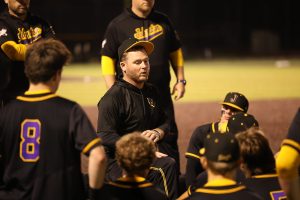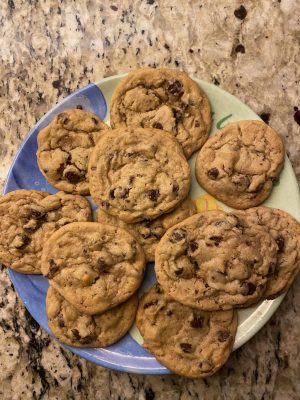Riley Reads Banned Books
April 27, 2023
In 2021, 1,597 books were targeted for challenges and bans, setting a new record for the U.S. In 2022, there were even more. The act of banning a book from schools and libraries that is meant to be used as a form of education is an act of censorship right out of stories such as 1984 and Fahrenheit 451. Both of these books, ironically, have been banned in the past themselves. A book will be published and, for one reason or another, there will be congregations of people wanting to have it banned from school curriculum, libraries, book stores, etc.
The primary issue with this practice is that the reasoning behind banning these books is often, to put it quite bluntly, nothing more than prejudice and discrimination against the social, sexual and racial groups around which these books are centered. These books are focused around sensitive topics such as race and gender and sexuality, which many people, particularly older generations, find uncomfortable or offensive. Parents claim to be protecting their children from these so-called “harmful” topics by keeping them out of their reach. However, the only thing that makes these topics harmful is the stigma and fear so many people have around them. By trying to protect their children, parents are only creating more hatred and discrimination towards these groups. Books that are written to educate, inform and unite people are made less and less accessible for young people — the very people who could benefit the most from these stories. Three out of the six books on this list are nonfiction memoirs. How can you ban someone’s own life story and experience just because you do not understand it? Society cannot benefit from the messages of censored books if we are not allowed to read them simply because they make us uncomfortable.
Gender Queer: Queer. Lesbian. Gay. Trans. Gender. Pronouns. All words that cause an irrational spark of fear running down the spines of so many cisgender, straight white Americans. Heaven forbid a gender non-conforming, or “gender queer” person writes and draws about their own life experiences and development. I think it’s safe to say that the vast majority of the people who are trying to ban this book have never read it, or even read a summary of it. All it takes is one glance at the title and the conspicuous cover art of a person who may not fit one’s ideal view of what a man or woman should look like. That alone is enough to send parents running in fear, desperately trying to cover the eyes of their poor, innocent children before they become infected with the deadly disease that is queerness. Maia Kobabe is braver than most by drawing out and explaining in great detail eir life and journey to discovering eir gender identity and sexuality. A message to those parents who are covering their children’s eyes right now: reading a book isn’t going to make you or your child gay, or queer, or trans or gender queer. In fact, it’s books like these that save the lives of children not so different from your own. Knowing that they are not alone or weird or wrong makes it that much easier for young people to learn to accept and love themselves as they are. So by running away, covering your eyes and plugging your ears, all you’re doing is hurting yourself, your children and every single person who has ever felt even a little bit weird or alone.
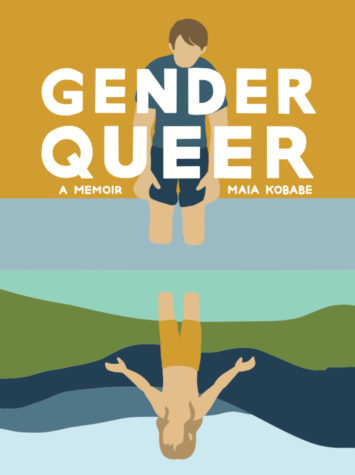
The Absolutely True Diary of a Part-Time Indian: Like most students at Johnston, I read The Absolutely True Diary of a Part-Time Indian for ILA in sophomore year. In truth, it didn’t blow me away with the writing or the story. There were parts that made me a bit uncomfortable—such as the main character referring to a girl’s eating disorder as “sexy”—but I would be lying if I didn’t say this is an extremely important book for high schoolers to read and understand. It follows a Native American boy and his journey going to school off the reservation in pursuit of a better education. This is a book that is supposed to make you uncomfortable, because life is uncomfortable. The main character is flawed and very very human, but it is important to learn from his mistakes, just as he does.
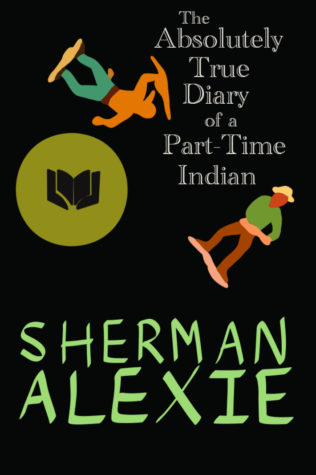
The Hate U Give: Even if you have not read this book, everyone knows the story of The Hate U Give. Everyone knows this story because it is not a story, it is a reality. An unarmed black man is shot and killed by a white police officer, reigniting the movement of protests and petitions. People again beg for change in the society that will continually let the white police officer walk away unscathed and unpunished, while justice for the black man is lost. It has happened time and time again in real life, as recently as this year; on February 3 unarmed Black man Alonzo Bagley was shot and killed by police. The Hate U Give is not a perfect book; it is riddled with stereotypes and painfully obvious metaphors, a little too literal than it maybe should be, but that is not why some Johnston parents want to ban it from schools and libraries. They want to ban it to bury the very real, very relevant message because it’s not “nice” or easy to hear. But that message is one that needs to be shared and heard especially by young people, because our generation is going to grow up, and we are going to be the ones leading a society that will hopefully be able to change and adapt. So that the same injustices and discrimination will not be shown to the next black man, woman, or child. So that someday the black man will be able to walk away, alive and unharmed. So that someday, this story is no longer a reality.
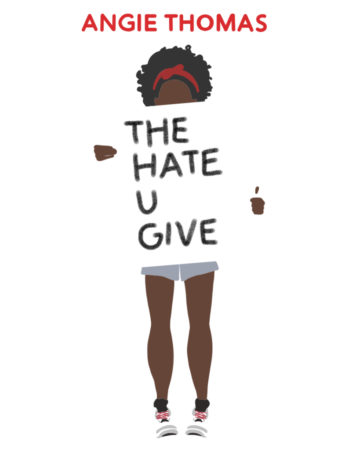
Lawn Boy: Mike Muñoz is the ultimate pick me boy. For starters, STOP REFERRING TO YOURSELF IN THE THIRD PERSON! I do not care that “good old Mike Muñoz” is having a bad day because he refused to take yet another job after complaining for 200 pages that he does not have any money. Second, no one wants to listen to an entire chapter of Mike picking up dog poop then screaming every single swear word in the book because he dropped it. Just pick up the poop, dude. Or don’t; just stop complaining about it. “Good old Mike Muñoz” needs to take a nap. And go to therapy.
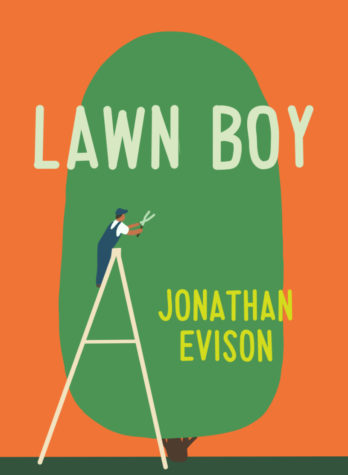
All Boys Aren’t Blue: George M. Johnson bravely details the moments of their childhood, life, and learnings, laying their most vulnerable moments bare in this memoir-manifesto. They explore their gender identity, sexuality, and race. In the simplest possible terms, they slayed.
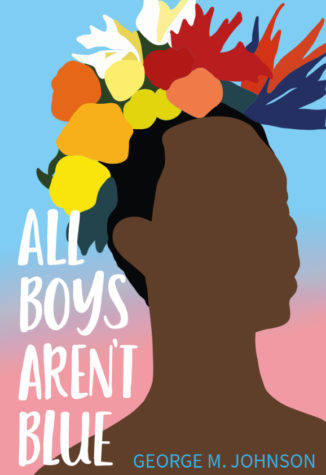
Fun Home: Shocking and funny at the same time and a bit weird, Alison Bechdel’s graphic “tragicomic” explores her childhood and her sexual identity. She specifically focuses on her unique and troubled relationship with her emotionally estranged father, leading up to and following his death. Bechdel grew up working in her family’s funeral home with a distant, abusive and predatory father whose own struggles with sexuality were reflected in his treatment of his wife and children. Both artistically and literarily, the author does not hold back when it comes to detailing the deeply intimate and, yes, sexual parts of her life and upbringing. As kids grow up, their curiosity and adolescence inevitably entails sexual aspects. Access to materials with explicit, “immoral” topics helps them explore a natural part of life educationally and safely. Representation is better found in a novel from the library than a pornographic video on the internet.
